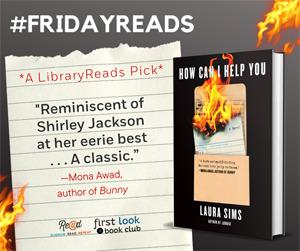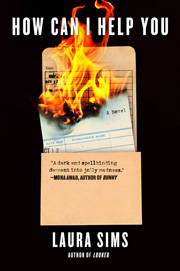
| Mon
Tue
Wed
Thu
Fri
Book Info
Subscribe
| |||
Dear Reader, Readers have been sharing some of their favorite summer recipes with me. It’s been fun reading through them and giving them a go. Who knows? I may find another family favorite. “Dear Suzanne, You asked for a favorite summer recipe, and I have to say this is definitely one dish we’ve made several times this summer. I had never tried this recipe until we visited some friends in Wisconsin last year, even though it’s…’Texas’ Caviar! Texas Caviar 1/2 c. granulated sugar (I use a little less) 1 can. black beans, rinsed and drained Combine the first three ingredients in a saucepan. Heat to boil, stirring regularly. Then cool completely. Combine finely chopped red opinion, celery, red and green peppers in a bowl. Add rinsed and drained black beans, pinto beans and corn. Add cooled sauce and stir well to combine. Add your favorite hot sauce to taste. Refrigerate overnight for best flavor. Serve with tortilla chips.” – Linda K. “Dear Suzanne, I’ve been making these peanut butter cookies since the 1960’s and it’s still my most used recipe: 1 cup peanut butter Stir all ingredients together. Drop by spoonfuls 2“ apart onto cookie sheets (or closer together onto a waxed paper-covered pan for freezing). (When freezing for future use, remove the wax paper with the frozen buttons from the pan, fold or roll it up and store in a large Ziplock bag in the freezer. To bake, peel off desired number of buttons and place on a cookie sheet, allow to thaw, and bake as usual. (I bake 6 in the toaster oven, 24 or so in a standard oven.) Bake thawed cookie buttons at 350* for about 20 minutes or until edges are crisp and golden. When I make any cookies, I usually double the recipe and freeze most of the ‘buttons’ of batter, still on the waxed paper, if I have room for a stuffed bag! I can peel off 6 buttons to thaw and bake whenever I’m hungry for a sweet snack. Now that I’m the only cookie monster in the house, it’s practical to bake 6 at a time in the toaster oven, and a full sheet when my grandkids visit. My other go-to cookies are Toll House, of course, and I freeze them the same way. Thank you for the book club!! I’ve got a list of books that’ll occupy me for a couple more decades! Keep ‘em coming!!” – Mary B. Thanks for reading with me. It's so good to read with friends. Suzanne Beecher P. S. This week we're giving away 10 copies of the book How Can I Help You by Laura Sims. Click here to enter for your chance to win.
| |||
How Can I Help You | |||
|
She makes her way to us at the circ desk around 2 pm, looking out of sorts. I'd seen her answering a call or two over there; maybe she got a squirrely one. It happens. But she tells us she's had calls that "don't seem like reference calls"—she leans hard on the word reference to make sure Nasrin and I get it. We do—and we're holding back laughs. I know just what she means: the spell-a-random- word-for-me calls, the what's-the-nearest-adult-novelty-store calls, the tell-me-what-the-weather-is-in-London-today calls. "We used to take all those calls ourselves," I tell her. "But now that you're here, Yvonne said we should start forwarding them to you." She blinks for a moment, eyes huge behind her lenses. Disbelieving. "I see," she says finally, though I'm certain she doesn't. I think there's a chance she'll pack up and leave Carlyle tonight, and shouldn't that make me happy? It should, but it doesn't. "You'll get better calls soon," I blurt, though it's a lie. I don't know why I've said it. Nasrin agrees, and I see Patricia relax. I relax, too. While I'm checking out a pile of comic books for two teens, I glance Patricia's way: stylish and sleek, she's like a rare bird over there, flaunting her feathers in the gloom. She radiates coolness, too. I look around, trying to see the library through her eyes: the water stains on the ceiling, the faded gray loveseat in YA, the drawn faces of our computer users, washed deadly white or gray in the light of their screens. Will she stay in a place like this? Or just land here for a while, before flitting away? I turn my full attention back to the teens. These ones aren't so bad; they're nervous and shy, with acne-pitted skin and mouths full of metal. "You kids have any schoolwork to do, or are these comic books your homework?" I ask, and they titter. "They're manga," the boy says, but not unkindly, not haughtily. I know what manga are— after two years, I've learned—but I play along anyway. While we're chatting, I sense Patricia's eyes on me, her interest warming my skin. What brought you here, Margo? she's wondering. But when I look up, she's picking through the desk drawers. Examining a ruler. Not the least bit interested in learning my story, of course. Who am I, to her? My spirits sag a little as I say goodbye to the teens. Just behind them is Julia Mather, one of our top five local eccentrics. It's like she popped up out of nowhere with her long, flyaway gray hair, her gnarled hands and glossy red nails. It's hard not to stare at those nails as she gestures wildly; she's clearly worked up. "I've returned several books in that metal box outside and you all continue to lose them." I wait for a beat. She'll go on. Julia always goes on. "I returned one just the other day and now it's listed as lost and apparently I owe money. My taxes pay your salaries here, you know!" We do know. Julia has told us many times; other patrons have, too. "If the book is lost—" I start. "But it isn't. I returned it to the metal box," Julia insists. My fingers tap quickly across the keyboard to bring up her record. "Ah," I say. With one hand, with one set of red nails, she twitches a long strand of hair over her shoulder. I stare at the screen, pretending to be lost in thought. Usually Julia amuses me; today, though, she simply annoys me. I try to breathe and relax my face. I had patients like her, of course—domineering ones who were always right, no matter what the nurses and doctors said or did. But patients were easier to deal with: half-naked and vulnerable in their hospital gowns, shivering with illness or fear even as they struggled for power. You knew they wanted comfort, reassurance, more than anything, and it was easy to provide. I never raised my voice once, like some others did—I only smiled and soothed them—with words or a quick jab. A shame I can't do that with Julia. I stare at her coldly, scanning her body. When she was younger, she must have been beautifully slim. Now she's the kind of thin that makes your skin hurt to look at her. Her nails are hidden under glossy color, but I bet they're ridged and bumpy—signs of ill health. And her dry, rasping cough doesn't bode well, either, but who knows? People like her can live off of bitterness for years. Unless someone helps them. Nudges them over the rim. "What is it? What does it say?" Julia leans forward, breaking the spell as she cranes her neck toward my screen. I refuse to turn it toward her, though I'm supposed to. "I see one book here that is long overdue. The Rise of Towson Manor, by J.S. Cullen?" She nods her head vigorously. "That's the one. Go out there and check. Go out there right now and you'll see. It's there." In my mind, I'm lifting her up in the air, rattling her bones. Dropping her back down. "That isn't my job, Mrs. Mather. Other staff members do that regularly. If it were in the box, they would have found it by now, and we'd see it here in the system." I tap my screen. Julia rears up, lifting her hands with her voice. "This is the forty-fourth book of mine you've lost. I won't pay this library a cent! I pay your salary, you know, and everyone's salary here!" She rakes her nails through the air to include us all: the layabouts who live off of Julia's bounteous wealth. Patricia is watching. Everyone is watching. I have the urge to bark out an angry laugh, but I beat it back. "I'm afraid this is the forty-fourth book of ours that you've lost, Mrs. Mather," I say quietly, leaning close and staring into her rheumy blue eyes. Just as her quivering lips open to protest, I lean even closer. "Now go home and find that book. Go home and find the other books, too. If you don't, you'll be paying a hefty fine, one that's long overdue. I'll collect it myself." It's the voice I would have used on Friday Guy, if I'd indulged myself last week. Julia takes two stumbling steps back. I think she'll make a fuss but then her hands wilt at her sides. She steps farther back from the desk, staring at me. Then she turns suddenly and shuttles through the door, her curtain of gray hair flying behind her. So, I win—of course I do. Jane always won, too, but those wins were more definitive, and they exist in a world unreachable from here. For an instant, I get a wave of hospital smell, like I did when I burned my scrubs the other night. I look around, but there's no evident source. A patron? They sometimes bounce between hospitals and here, bringing the scents of each place with them. I scan the main floor but there's nothing to see, and it's not like I can go around sniffing everyone. "What was that?" Yvonne emerges from the office, dimples nonexistent, a quizzical look on her face. She doesn't like a fuss. But looking around, it's hard to say there ever was one. The whole room is tranquil as a lake. Patrons sitting quietly in patches of sun, undisturbed, like turtles sunning themselves on rocks. Others drifting slowly through the aisles. But there was a fuss, of course, and my nerves are still singing with it: I can tell that my color is up, and my underarms are damp. Calm down, I tell myself. Calm down for god's sake. "It was nothing," I tell Yvonne. "Just Julia Mather being—herself." This wins me a dimpled smile and a satisfied nod from Yvonne. No one needs to say much more than "Julia Mather" for the rest of us to understand. We go through this once a month or so: Julia comes in, airing her eternal complaint, and we respond in our brusque, eternal ways. It's a dance we do. Usually, I pace calmly through the moves, even with Julia nearly spitting in my face. The difference, today, was how close I came to swerving off the path. I go on checking out books, offering patrons my smiles and chit- chat. "The weather is changing so fast. I was cold walking here this morning!" "You love this author, don't you? How many books of his have you read?" "Did you see our Hispanic Heritage Month display? You might find something there." All the while, I'm seeing Julia's shocked face, her hair flying behind her as she marched out the door. Then I imagine her tucked under sheets, her eyes begging for help. Those red nails clutching fabric. The fabric of the sheets, then the fabric of my shirt—the one I burned. Help me, she mouths. I have to stifle a moan. This vision leads me to Ms. Jensen: my very last patient. I was meticulous in my care of her. Brushed her long gray hair—like Julia's, but better maintained—with the hairbrush her husband had left on the bedside table. Fed her ice chips with a spoon. Spooned the medicine into her mouth, too, a little at a time, with encouraging words. Come on. There you go. Good girl. Held her hand as she seized. And seized again, staring, wild-eyed. I got down close to her face and stared into those eyes, so vast, the pupils wide and black—and then shrinking, shrinking. This was the private ritual I'd been carrying out for years, but that time a familiar voice startled me: What the fuck are you doing, Jane? It was Donna. My dear old friend Donna. I'd never been caught before; all I could do was gape at her as she pressed the call button and summoned them all. It had been so peaceful just moments before—only Ms. Jensen gasping, only the two of us with our eyes locked together, and then Donna and the rest came crowding the room with their terrible noise. Dr. Abdul slapping on rubber gloves, the nurses handling Ms. Jensen like a dead fish. All of them shoving me aside. As I backed out of the room, no one noticed but Donna. Why she didn't scream I'll never know. Some last vestige of loyalty? Or maybe I'd shocked the sound right out of her. I stopped in the break room, stuffed my belongings from my locker into a plastic bag, and walked quickly, my shoes squeaking all the way to the sliding glass doors. I looked back once, though I shouldn't have. No one was there. Just the hallway, shining like water. It already felt alien and remote, like every other place from my past: cramped old family home, threadbare apartment, sickly yellow-tiled grade school. Sadness welled up in me so fast that I had to vomit in the parking lot. Then I stood and walked straight-backed to my exhausted little car. I drove—burying Jane and building Margo, mile after mile. Patricia looks up. I realize I've been staring so I smile, raise my hand in an awkward wave. She smiles, too, but then looks away. I watch her study her screen, and then scribble down notes in her notebook. Studious. Alone. She's so shiny and new that no one knows what to do with her. Patrons avoid her. Liz and Nasrin have whispered about her, but they stiffen when she comes near. It's her first day, so I expect this to change. As she writes, brow furrowed, I'm convinced for a moment that she's transcribing my memory: the deathbed scene, the awful commotion, Donna's clenched face, and my chucking up sickness in the parking lot before speeding away for good. But she can't be, of course. She couldn't have seen any of that. She's just a woman at a new job, taking notes. Even so, I can't fully relax until I'm home and sliding into steaming hot water. My god, it's good to scald yourself nearly to death. All the day's strangeness evaporates. I lie there, utterly calm and free, looking down the length of my bodily landscape. The tips of my breasts rise like islands out of the water, as they always do, as they've always done, except when I was little, and the water would swallow me, and I'd look down and see nothing, as if I'd vanished. That was a great comfort to me then. I slide all the way under now, like I did back then, though the tub is more cramped than it used to be. Now I have to contort myself to get all the way under, but I manage it, and hold my breath for as long as I can, then come up out of it with a great, cleansing exhale. Love this book? Buy a copy online.
| |||
| Mon Tue Wed Thu Fri Book Info | |||


